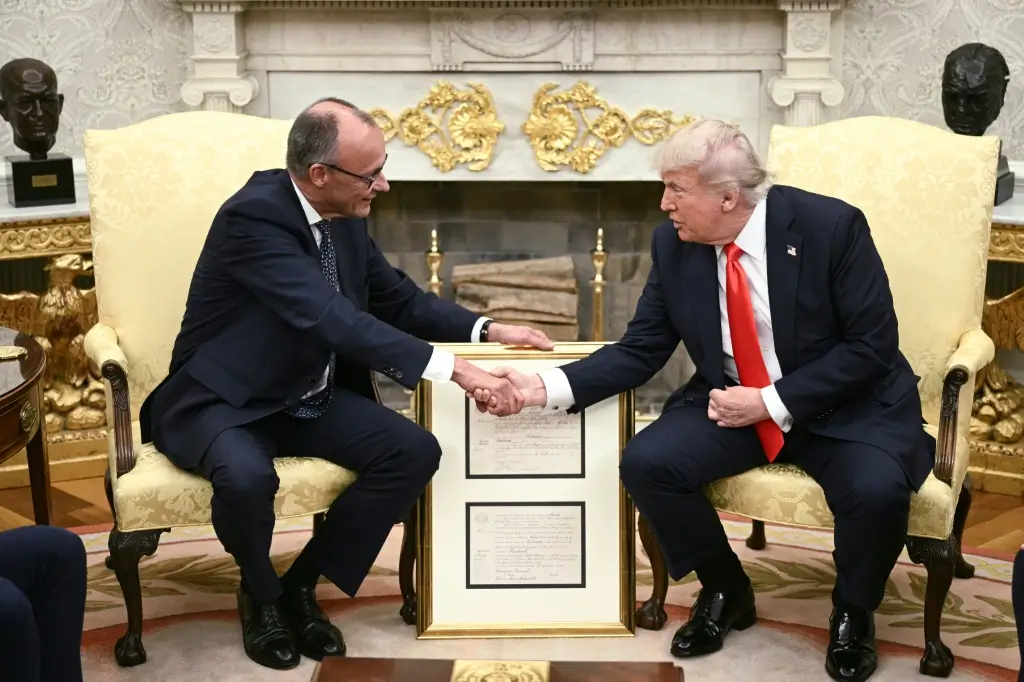
After his meeting with US President Donald Trump in Washington, German Chancellor Friedrich Merz (CDU) emphasized the importance of good, equal relations. He told Trump: "You, too, need partners in the world," Merz said in a speech to family business leaders in Berlin on Friday. "Authoritarian systems have subordinates; democracies have partners, and we want to be those partners, in Europe and with America," he added.
Merz met with Trump in Washington on Thursday. The visit was subsequently viewed positively by the government and the coalition factions. The talks at the White House were a "good start," said German Foreign Minister Johann Wadephul (CDU) on Thursday evening on the ZDF program "Maybrit Illner." "I think you also heard a bit of respect from Donald Trump."
Merz was able to "make his points" in Washington, particularly regarding Ukraine, Wadephul continued. It is "very important for us now that the US works with us on Ukraine's side." Merz said on Friday that, contrary to what has often been portrayed, the US government is "open to discussions," listens, and is "ready to accept other opinions." However, the Chancellor also acknowledged in this context that there are different positions on Ukraine policy.
However, the topic was further discussed in internal discussions between him and Trump after their joint public appearance at the White House. Trump also explicitly declared his support for solidarity within NATO. He has "absolutely no doubt about that," the Chancellor clarified. Conversely, Merz added that he considered the US government's expectation that Europeans should take greater responsibility for their own defense to be "not unjustified." However, measures and decisions have already been taken to this end: "We are ensuring that we can also defend ourselves," the Chancellor emphasized.
Merz announced intensive talks regarding the additional tariffs ordered by Trump and trade relations with the US in general. It was agreed that, in addition to the consultations between the US and the EU, representatives from both governments would also exchange views on the matter. "Of course, we also have some national interests," Merz said of this approach.
SPD foreign policy expert Ralf Stegner said of the meeting between Merz and Trump that it was a "friendly and relatively non-binding joint appearance." "There wasn't much political substance yet," he added. Trump even clearly tried to "be nice," which was also a political signal, Metin Hakverdi (SPD), the German government's coordinator for transatlantic cooperation, told broadcaster Phoenix.
Bundestag Vice President Omid Nouripour (Greens) also expressed an overall positive opinion. He told Deutschlandfunk that the meeting had been "uneventful." Green Party foreign policy expert Deborah Düring, however, spoke on the station of a "missed opportunity" because Merz had failed to advocate for human rights and the rule of law in Washington.
It was "already a success that there were no unpleasant surprises," Monika Schnitzer, chair of the Council of Economic Experts, commented on the meeting in the "Rheinische Post" newspaper. Merz also used the meeting to clarify "who is the aggressor and who is the victim in the Ukraine war." Deputy government spokesperson Steffen Meyer said in Berlin that it was also important for Merz to clarify the distinction between Russia attacking civilian targets in the war, while Ukraine attacks military targets.